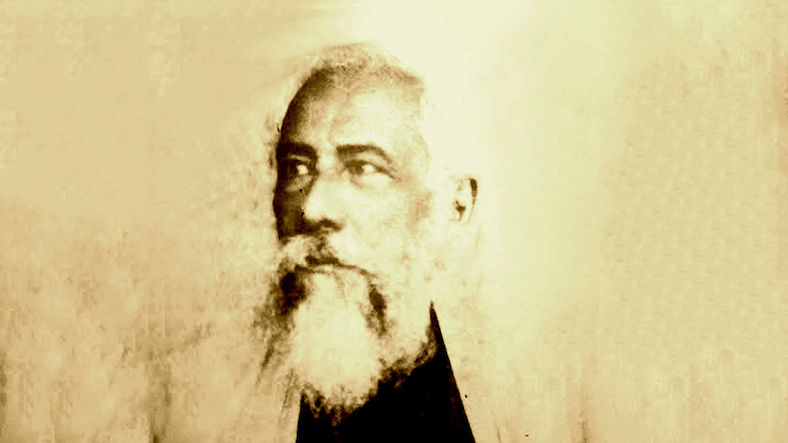Debendranath Tagore (1817-1905) was a prominent Bengali philosopher, religious reformer and social thinker. He is best known as the father of Rabindranath Tagore, the renowned poet, writer and Nobel laureate. Debendranath Tagore himself made significant contributions to the religious and social movements of his time.
Here are some key aspects of his life and work:
- Early Life and Education: Debendranath Tagore was born on May 15, 1817, in Kolkata, British India (now Kolkata, India). He belonged to a wealthy and influential Bengali family. He received a traditional education and later studied law in England.
- Brahmo Samaj: One of Debendranath Tagore's most significant contributions was his role in the establishment and development of the Brahmo Samaj, a socio-religious reform movement. He became a prominent leader and spiritual guide of the Brahmo Samaj, which aimed to reform Hindu society and promote monotheistic worship based on rationality and social equality.
- Tattwabodhini Sabha: Prior to the formation of the Brahmo Samaj, Debendranath Tagore was involved in the Tattwabodhini Sabha, a religious discussion group founded by his father, Dwarkanath Tagore. The Sabha focused on the study of Hindu scriptures and philosophical discussions.
- Religious and Philosophical Writings: Debendranath Tagore wrote extensively on religious and philosophical topics. His writings, including "Manomohan" and "Sadhana," explored the concepts of spirituality, the nature of God and the importance of ethical living. He emphasized the pursuit of inner spirituality and moral values.
- Social Reforms: Debendranath Tagore advocated for various social reforms. He worked towards eradicating social evils such as child marriage, caste discrimination and sati (widow burning). He also supported women's education and empowerment.
- Influence on Rabindranath Tagore: Debendranath Tagore's teachings and values had a profound impact on his son, Rabindranath Tagore. The spiritual and philosophical ideas passed down from father to son greatly influenced Rabindranath's literary works and his worldview.
- Legacy: Debendranath Tagore's contributions to religious and social reform have had a lasting impact on Indian society. His efforts to promote monotheism, rationality and social equality continue to inspire generations. The Brahmo Samaj, which he helped shape, remains an important institution in Bengal.
Debendranath Tagore's progressive ideas and efforts to reform society through religious and philosophical means made him a significant figure in the cultural and intellectual history of Bengal. His influence on the Brahmo Samaj and his role as a guiding force in the life of his son, Rabindranath Tagore, further cement his legacy as a reformer and thinker.
Thanks for reading the about this great personality on our peoples blog, for more such great people read our peoples blog articles.










